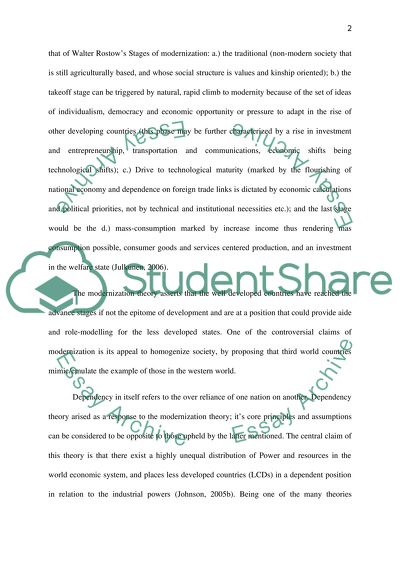Cite this document
(“The Modernization and Dependency Theories of Development Essay”, n.d.)
Retrieved from https://studentshare.org/miscellaneous/1501693-a-comparative-analysis-of-the-modernization-and-dependency-theories-of-development
Retrieved from https://studentshare.org/miscellaneous/1501693-a-comparative-analysis-of-the-modernization-and-dependency-theories-of-development
(The Modernization and Dependency Theories of Development Essay)
https://studentshare.org/miscellaneous/1501693-a-comparative-analysis-of-the-modernization-and-dependency-theories-of-development.
https://studentshare.org/miscellaneous/1501693-a-comparative-analysis-of-the-modernization-and-dependency-theories-of-development.
“The Modernization and Dependency Theories of Development Essay”, n.d. https://studentshare.org/miscellaneous/1501693-a-comparative-analysis-of-the-modernization-and-dependency-theories-of-development.


